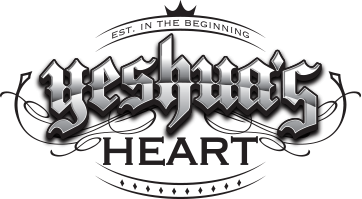Sacrificial Lamb and the Sacrificial System: God’s Grace
Its hard for a new believer to grasp the complicated principles around God’s sacrificial system that is detailed in scriptures, namely in the Torah.
I think it’s even harder for believing Christians who are coming out of “churchianity” and into the truth of the whole bible, as they have to unlearn a lifetime of teaching about what exactly the laws and sacrifices are.
Often we are taught that Yeshua (Jesus in Greek) died for our sins so we don’t have to obey the law anymore. He literally taught the opposite of that. But first let me explain exactly what the sacrificial system is for, and what it does; then you will see a much bigger picture of the importance of His sacrifice for us.
I found an excellent teaching by Tom Bradford of Torahclass.com and thought I’d like to share my overview of this teaching and provide the video for you below.
Law and Sacrifice: God’s Justice System
It’s important to understand that sacrifices and the law are two different parts of God’s justice system. The instructions, loosely called the “law”, are a way for us to live together in harmony with each other, but also in fellowship with God.
Sin corrupted that fellowship, and by his GRACE he provided a system of sacrifice to help us repair and maintain our relationship with Him. But there are several parts to this sacrificial system.
While some sacrifices were to atone for individual sin or national sin, other sacrifices were to provide purification, and still others as an offering. The focus of this article is atonement for sin.
That is, the animal took your place, and your sin placed upon it, instead of the sinner bearing the consequence of that sin.
This system was set in place to benefit the sinner, not about paying off God so you could be acceptable to him. It was more about showing him obedience, than about Him finding appeasement from our sacrifice.
Deuteronomy 11:26-28: “See, I am setting before you today a blessing and a curse: the blessing, if you obey the commandments of the LORD your God, which I command you today, and the curse, if you do not obey the commandments of the LORD your God, but turn aside from the way that I am commanding you today, to go after other gods that you have not known.”
We usually see sin in varying degrees of severity. A small sin like a little white lie, is nowhere near as bad as a pre-meditated murder. However, God sees sin first as intentional or unintentional. That is, sin we knowingly commit as opposed to sin we accidentally commit.
God’s sacrificial system provided grace to cover accidental sin, but there was no way for someone to atone for intentional sin. A Hebrew who committed an intentional sin was under the “curse” of the law.
You’ve probably heard that phrase before, and that is exactly what Paul is talking about when he said we are under “the curse”.
Curse of the Law
Can you imagine how serious this situation was to a Hebrew? Ever had a bad day and intentionally hurt another person? Ever lied about someone or something? One bad day could condemn you for life, if you even lived that long after getting busted.
Hebrews and then later Jews spent their whole lives worried about whether or not they were sinning. Not only as an individual person, but as a nation as a whole.
National sin could also bring the consequences of the curse of sin, and we see proof of that pattern throughout Israel’s history.
A person in ignorance of the law almost had it easier. If they did not know the law and committed a sin, it was unintentional. But those who knew the law the best were under intense scrutiny. That is why the more educated a Hebrew was in Torah, like say… a Pharisee; the more zealous they were to follow it.
Romans 7:9 “Once I was alive apart from the law; but when the commandment came, sin sprang to life and I died.”
Paul said it best in Romans 7:9 when he said he did not know what sin was when he didn’t know the law, but once he knew the law, he knew his sin and that sin carried the penalty of death. Since sin was transgression of the law, his knowledge of it put him under the “curse” of the law.
He wrapped this statement with two supporting statements about the goodness of God’s instructions (law):
Romans 7:7 “What shall we say, then? Is the law sinful? Certainly not! Nevertheless, I would not have known what sin was had it not been for the law…”
Romans 7:12: “So then, the law is holy, and the commandment is holy, righteous and good.”
Messiah: the Sacrifice and the Passover Lamb
Here’s where it gets really good:
The Hebrews knew that a messiah would come, and take this problem of the curse of sin and death away for intentional sin. Tom Bradford points out in the teaching video below:
“When Yeshua died on the Cross at least 2 things were accomplished that directly affects us: One, He paid the price with His blood for our sins……He atoned for our sins…..intentional and unintentional. Two, as the Passover Lamb, His blood marked us to be passed over for the Eternal Death….Spiritual Death….which the Bible describes as, first and foremost, eternal separation from God.”
Bradford goes on to say “And as you have occasion to read Paul’s books in the New Testament, try to grasp just how INFERIOR the sacrificial part of the Law must have seemed to him, once he comprehended what Yeshua’s death had accomplished.
Paul never says the Law is obsolete or dead; he only says that compared to Christ, the Law (primarily the sacrificial portion) is as nothing. Amen, brother! That by faith in Christ, you now are subject to Christ’s grace when you intentionally sin, instead of subject to the curses of the Law when you intentionally sin is too wonderful for words.”
Can I get an Amen? Watch the video below for the whole lesson.


